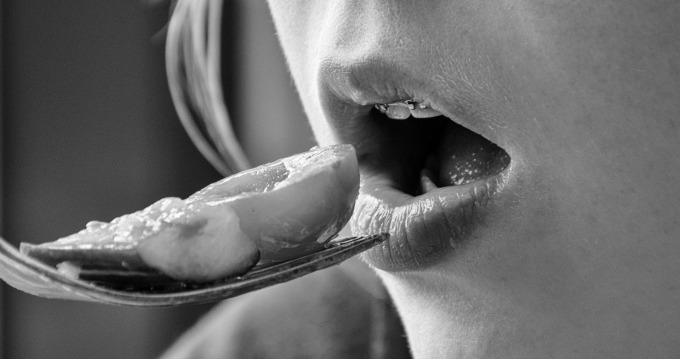
My daughter started showing signs of extreme sensitivity to sounds when she was a preschooler. Like most kids her age, she hated loud, unexpected noises, but what affected her the most were small, everyday, innocuous noises. She’d lose her mind—crying and screaming—over just about everything her younger brother did at the dinner table: namely smacking, loud swallowing, and other fairly normal eating-related noises. My husband and I thought she was being overly dramatic and combative toward her younger brother, thus ruining dinnertime for us all. Dinner wasn’t a fun time to eat at our house, I’ll tell you that.
Finally, one evening when she was about five years old, in a fit of frustration, I offered to let her wear headphones at the dinner table, thinking that I’d call her bluff and that this would shut down the dramatics once and for all. Surprisingly, she took me up on the offer and happily enjoyed her meal with her headphones on. The headphone technique worked for quite a while, then the problem seemed to mostly taper off and the headphones slowly went away.
Now, in recent years, the problems have returned. As always, the source of her rage is mostly her younger brother, but she has also begun (politely) letting my husband and me know if we’re chewing too loudly or making other mouth-related sounds that bug her. Up until fairly recently, I’d roll my eyes at her (after assessing the state of my mouth situation to make sure that I wasn’t, in fact, smacking). Then, one day I heard the term “misophonia,” and it changed everything.
According to WebMD, misophonia is “a strong dislike or hatred of specific sounds.” Even the DNA and genetic testing organization 23andme.com recognizes misophonia and has located a genetic marker for the condition. 23andme.com recently conducted a study, asking more than 80,000 people if they were “’filled with rage’ by the sound of others’ chewing.” Twenty percent of those polled said “yes.”

Most people who exhibit signs of misophonia describe the same sets of sounds that bother them, and they’re often mouth noises (typically associated with eating) or repetitive tapping sounds. I recently heard someone who struggles with misophonia describe their “worst nightmare scenario” as riding in a car with someone eating an apple.
My daughter has a textbook case of misophonia and is bothered by the same noises that most other people who struggle with the condition report. Sounds that my daughter has difficulty tolerating are:
- Smacking
- Loud chewing
- Whistling
- Humming
- Pen clicking
- Tapping
One thing happened when we finally had a word for what my daughter experiences: she instantly felt validated and heard. Starting a dialog about it, giving it a name, and no longer condemning her for acting out about noises that annoy her, has really helped the situation and made us all more aware of the sounds that we make when she’s around.
Middle school, however, has presented a few bumps in the road for coping with her misophonia. Surprisingly enough, she reports that the school cafeteria is a relatively safe place at lunch time, because the overwhelming volume of noise drowns out any nuanced smacking that is going on near her.
However, one of her teachers allows the students to bring snacks to eat during class, and this has proven to be a big problem for my daughter. In a quiet classroom, where she needs to be able to give her full attention to the teacher, she’s surrounded by classmates opening crinkly bags of crunchy chips, loudly chewing bubble gum, and chomping on trail mix. This problem has forced her to stand up for herself, speak respectfully to her classmates about the noises they’re making, and also discuss the issue with her teacher. (Update: I’m happy to report that the teacher has since outlawed all snacks in her classroom.)
It’s still a daily battle to help my daughter cope with her extreme sensitivity to sound, but now that we know she’s not just being dramatic, it has given us all the freedom to explore her options and better handle the situations that cause her distress. Also, the more that I talk to people about my daughter’s misophonia, the more people say things like, “Oh my gosh! I’m like that too! I didn’t know there was a word for it.” Or, people recognize similar traits in their own kids. If by sharing my family’s struggles with misophonia, I can help even one family reclaim the peace at dinnertime, then I’ll feel like this journey has been worth it.












That’s a great idea! Thanks for sharing!
Jenny, I have misophonia and have for years. The thing I learned to do is wear ear plugs during class. I got the bright pink ones so my teachers would know when I had them in and understand that it was to hear them better and drown out all of the side noises. My classmates also knew that when the ear plugs came out, there was a reason and would try to stop. I hope this tip helps!!